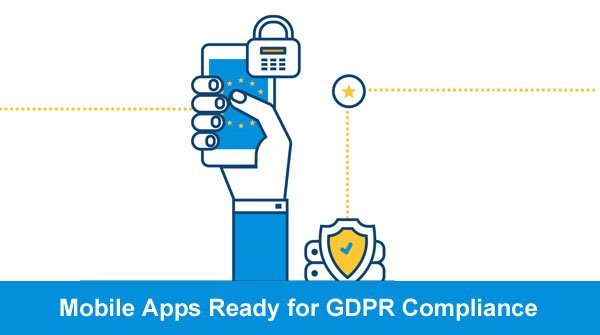Mobile Apps Ready for GDPR Compliance
GDPR Impact – Mobile App developers and publishers are completely and directly responsible for their users’ information. The App owners should assure entire visibility with real-time control over the app’s usage and activity. they have to 1st learn everything regarding how they acquire, store, transfer, and use of information, to enhance security.
Mobile apps that rely on advertising to monetize are significantly vulnerable. Apps Developers integrate an average of 18 third-party software system development kits into their apps, as SDK management platform SafeDK suggests roughly 18 opportunities to improperly method information while not consent. Although mobile apps aren’t essentially additional in danger of GDPR violations, they do have specific and nuanced tasks they have to complete so as to comply, and lots of are noticeably behind.
Each of the top 50 free iOS and Android apps within the App Store and Google Play contains multiple SDKs that seem to try and do some type of tracking and information assortment. Apps share responsibility with their information processors for what information is collected, how it’s kept and therefore the handling of information subject requests, like the right to be forgotten or information portability.
Before GDPR, several app publishers finally deleted this “legacy code” from their apps, said Ronnie Sternberg, chief business officer and co-founder of SafeDK. There’s additionally a graveyard of unused SDKs among several apps that developers never daunted to delete and will be leaky information. It’s practical for regulators to hit SDK suppliers 1st due to the immediate knock-on effect across all apps within which they’re integrated. However, that doesn’t mean apps are off the hook.
Publishers shouldn’t look forward to regulators to come back knocking on their door before they get compliant,” Morazan aforesaid. “Not to mention the actual fact that the GDPR empowers an app’s end users, their own customers, to report any violations they see to their native information protection authority.”
The first factor an app should do to comply with GDPR is run an information-mapping exercise to spot what personal data is collected, why it’s collected and therefore the lawful basis for assortment and process, whether it’s legitimate interest or, more likely, consent.
The next step is to make an information minimization policy. Under GDPR, firms will only collect information for specific business functions and can’t keep information longer than necessary. Once all of that’s settled, developers will create consent prompts. It’s not a bad idea to look at the approaches taken by some larger apps with their consent pop-ups. There’s no one way to do it, however, opt-in notices do need full transparency while not going overboard.
Therefore, the conclusion is GDPR can revolutionize the way information is handled by organizations and enterprises. Have to follow the new rules, and therefore the firms as well as mobile apps, have to change their data processing and storage practices, particularly with regards to third-party services (SDKs). Automated observance and control tools are really useful.
